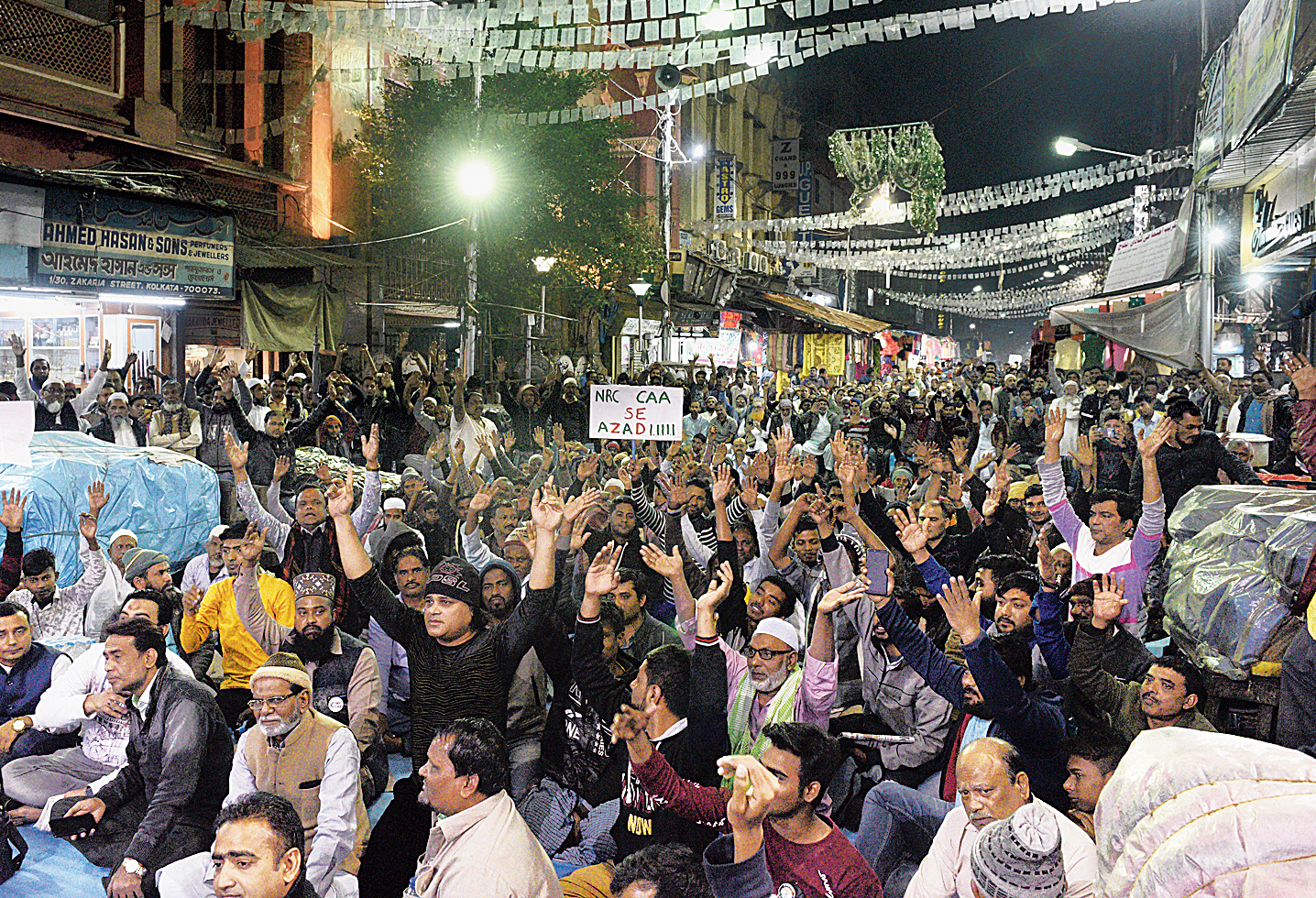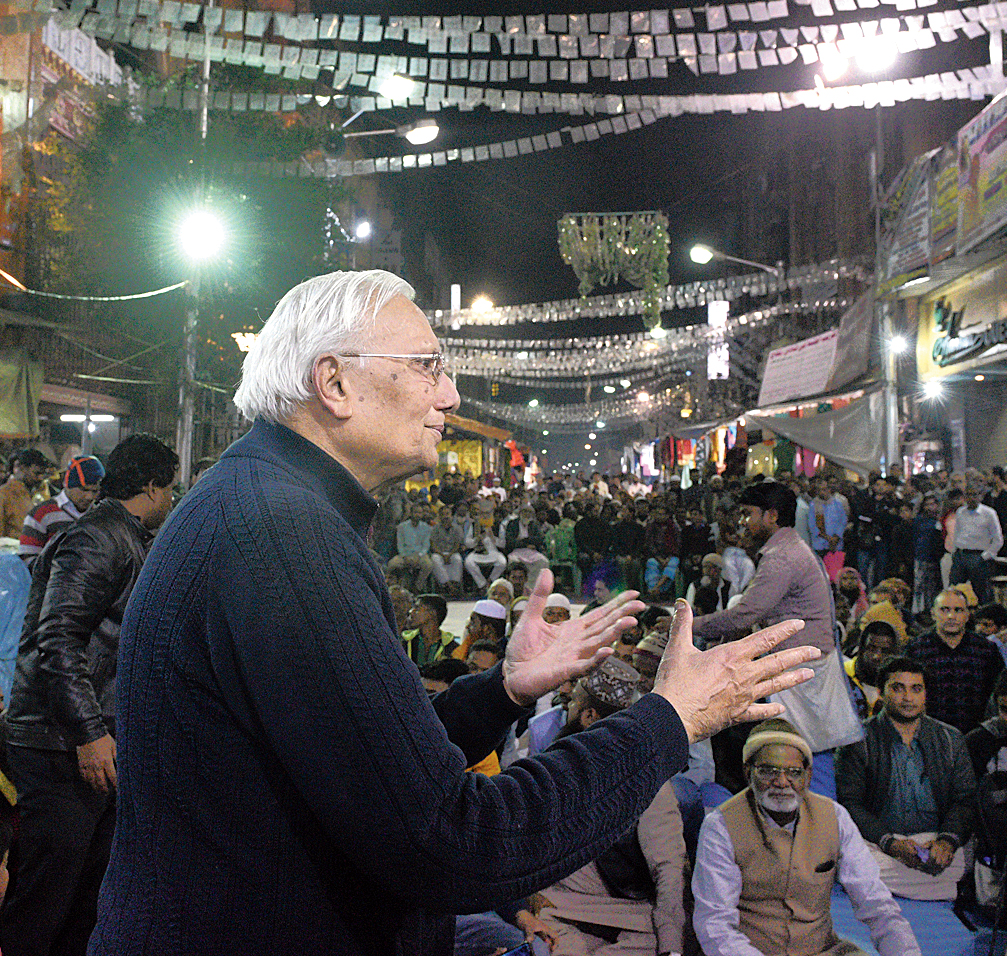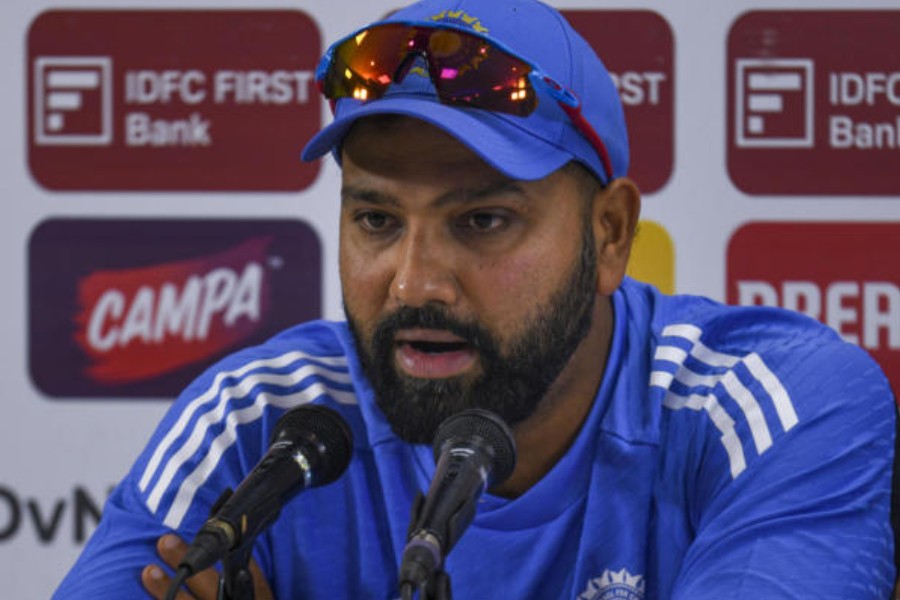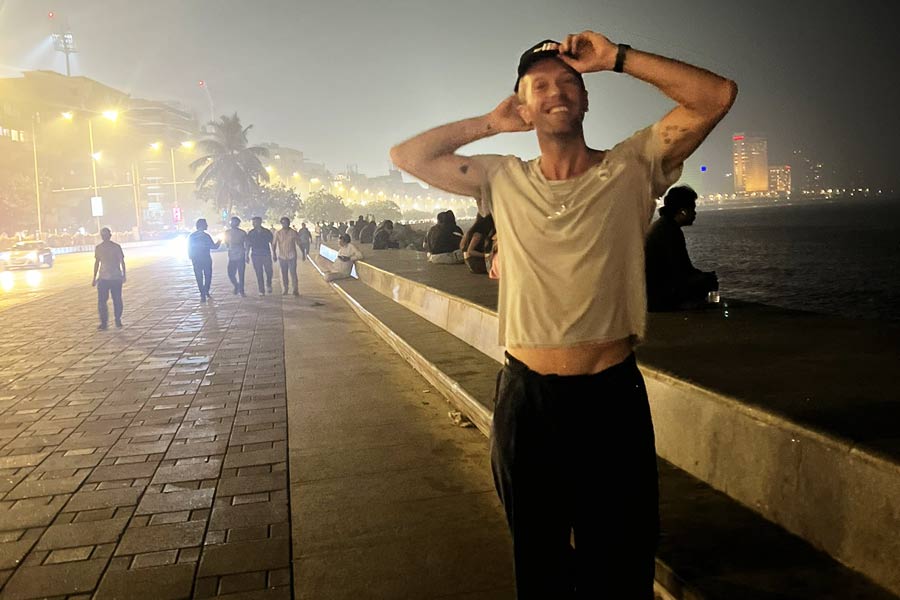A deafening roar of Jai Hind rang through Zakaria Street, the road in front of Nakhoda Mosque, around 6.45pm on Wednesday, followed by an encore.
The chant came from a few hundred people, mostly Muslims, who had gathered to protest the amended citizenship act.
Zakaria Street is synonymous with the inviting aroma of kebabs on winter evenings. But since January 10, it has also been the venue of a demonstration against the Citizenship Amendment Act (CAA), National Population Register (NPR) and National Register of Citizens (NRC).
Women — homemakers, political activists and students — are at the forefront of the sit-in on the road in front of Nakhoda Mosque.
Gandhian O.P. Shah addressed the gathering on Wednesday evening with a strong message of secularism. “The essence of democracy is dialogue. The government cannot impose its view on others because it has a majority,” Shah said.

Protesters raise slogans against the Citizenship (Amendment) Act and the National Register of Citizens. Pictures by Pradip Sanyal
The crowd, at least a few hundred seated besides bystanders and shopkeepers, listened in rapt attention.
Owais Aslam, a social worker, was one of the speakers at the demonstration. “We eat different food, wear different clothes and speak different languages. We are like different musical instruments in a concert. All instruments have to be in sync for a good concert. Similarly, the country will prosper if all of us live in harmony,” Aslam said.
He concluded his address by chanting Jai Hind. The audience, including bystanders and shopkeepers, chorused in response.
Bushra Khatoon, a Class XI student of Welland Gouldsmith School in Bowbazar, sang a nazm — Qaum ki betiyon tum par lakhon salam (Lakhs of salutes to the daughters of our nationality) — composed at the Darul Uloom Deoband in Lucknow.
Umme Habiba, a student of chemical engineering at a private college in Chowbaga, was among the demonstrators. “The discrimination is not only against Muslims. What about those who have lost everything in floods? What about transgender persons who have been rejected by their families? What will happen to the thousands of homeless people who live on the streets?” she asked.
Umme had come prepared with a speech that highlighted “contributions of Muslims in India’s history”, the list starting with nawab Siraj ud-Daulah.
A group sang Tu Hindu banega na Musalman banega, insaan ki aulad hai insaan banega (you will neither become a Hindu nor a Muslim, you were born of humans and will become a human), the song penned by Sahir Ludhianvi and sung by Mohammad Rafi in the 1959 film Dhool ka Phool.
Three women — Aysha Renna N., who had shielded a friend from police assault during the police crackdown on Jamia Millia Islamia students; Debsmita Chowdhury, who tore up a copy of the Citizenship (Amendment) Bill on the stage at the Jadavpur University convocation; and Khadija Aslam, a student of Jawaharlal Nehru University — had assembled on Zakaria Street on January 10 to speak against the CAA, NPR and NRC.
Zakia Khan, a homemaker pursuing her master’s in English at Rabindra Bharati University, echoed the same spirit on Wednesday. “When the government cannot give food and education to so many people living here, how will it sustain people from other countries?”











